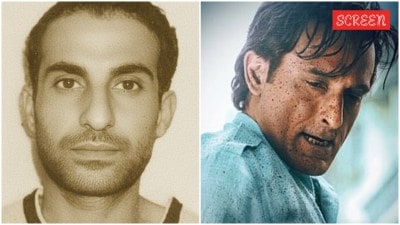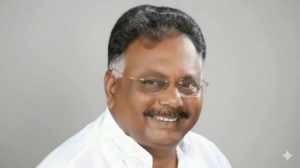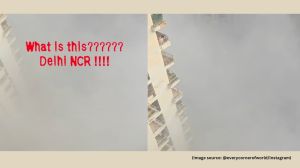CAA rules notified, why it is a key part of BJP plan to consolidate Matua votes in Bengal, undo 2021 damage
The SC community threw its weight behind the BJP in 2019, helping it win a record number of LS seats from the state. But two years later, the support splintered in the Assembly polls.
 During an anti-CAA rally from Moulali to Park Circus in Kolkata on Tuesday. (Express File Photo)
During an anti-CAA rally from Moulali to Park Circus in Kolkata on Tuesday. (Express File Photo)In the complicated terrain of West Bengal politics, the Matua community has increasingly become assertive over the past couple of decades. It is now a crucial vote bank that parties with the ambition of doing well in the state vie to keep on their side. With the Union government notifying the Citizenship Amendment Act rules, the BJP hopes to ensure that the Matuas stay with it, unlike the 2021 Assembly elections, and help it build on the gains made five years ago.
The Matuas are a religious group of Namasudras, or Dalits, who migrated to India in large numbers during Partition and later in 1971 during the Bangladesh Liberation War. Most of them live in the state’s North 24 Parganas and Nadia districts while a sizable chunk also live in the districts of Purba Bardhaman, South 24 Parganas, and Cooch Behar. Due to the circumstances of their migration, most of them never formally received Indian citizenship.
As a result, the political assertion of the Matuas, led by the Thakur family, took the form of attempts to increase the community’s representation in political parties and government, and ensure those who do not have citizenship papers receive them. This is why the Matuas are among the biggest supporters of the Citizenship Amendment Act. They had been pushing for its operationalisation ever since Parliament approved the law in December 2019.
The Matua electorate, according to some estimates, is around 1.75 crore and is a crucial factor in the Lok Sabha constituencies of Bangaon, Barasat, Ranaghat, Krishnanagar, and Cooch Behar. Of these, Bangaon, Ranaghat, and Cooch Behar are reserved for Scheduled Castes (SCs) and all three went to the BJP in 2019 while the Trinamool Congress (TMC) won Barasat and Krishnanagar.
The BJP’s promise of citizenship to Matuas was one of the reasons they swung behind the party in that election. As a result, the BJP won a record number of 18 seats from Bengal, leading in 33 of the total 68 SC-reserved Assembly segments in the state. Of these 33 seats, 26 are Matua-dominated.
However, the BJP did not immediately fulfil the promise of notifying CAA rules after the law was enacted and, as a result, a section of the Matua leadership became unhappy with the party. This allowed the TMC to regain lost ground in the Assembly elections in 2021. In the 26 Matua-dominated Assembly seats, the BJP won 14 seats while the TMC made a return by bagging 12. In the Assembly segments that constitute the Bangaon, Barasat, Ranaghat, Krishnanagar and Cooch Behar Lok Sabha constituencies, the results mirrored the 2019 results. The BJP led in most of the Assembly segments in the three SC-reserved seats (though its vote share in Bangaon and Ranaghat took a hit).
By operationalising CAA, the BJP has finally fulfilled its promise to the Matua community and it will look to repeat its 2019 performance and wipe out the advances the TMC made two years ago. “The Union Home Minister promised that CAA will be implemented. Finally, it has been done. This shows that the Centre is serious about the demands of the refugee community and makes all efforts to fulfil them. Members of refugee communities are happy because the BJP has kept its promises,” said state BJP president Sukanta Majumdar.
But the TMC is having none of it and has accused the ruling party at the Centre of misleading refugees. At an event in Habra in North 24 Parganas on Tuesday, Chief Minister Mamata Banerjee told people of the state not to apply for citizenship, saying they would be “marked as refugees and infiltrators” and “deprived of government schemes” if they did.
TMC’s Rajya Sabha MP and Thakur family member Mamata Bala Thakur said, “We are already citizens of this country. We have Adhaar and voter cards. We were elected as public representatives because we are citizens of this country. Therefore, there is no need to prove our citizenship. Besides, a large number of people have lost their documents over the years. How will they prove their citizenship?”
- 01
- 02
- 03
- 04
- 05































